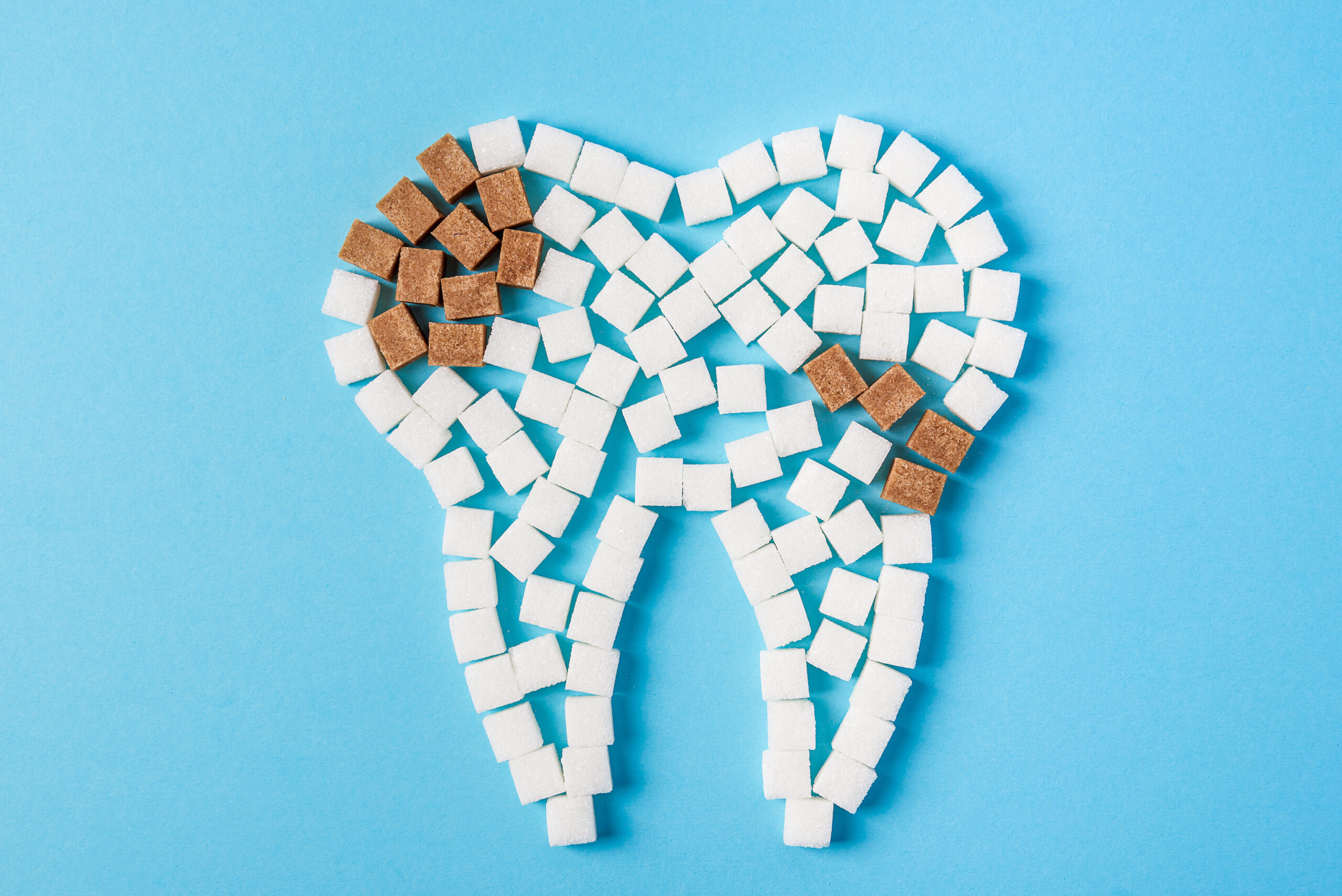
Why Sugar Is Bad for Your Teeth
You were probably told as a child that too many sweets can cause cavities. Although the occasional sweet treat is usually not harmful, too much sugar in your diet can have a negative impact on your smile. Sugar induces a chain of events in the mouth that can lead to the breakdown of teeth.
How Dental Cavities Develop
The mouth is filled with billions of bacteria — some good and some bad. The good microbes help protect against the harmful bacteria in certain foods and help keep the bad bacteria in check. However, bad microorganisms feed on the sugars that you consume. They produce acids that remove the essential minerals from tooth enamel in a process known as demineralization.
Demineralization generally occurs when teeth are repeatedly exposed to acids from food and drink. At this stage of tooth decay, damage caused by demineralization can usually be reversed. This can be done through proper oral hygiene and fluoride exposure. Continued demineralization can result in more severe tooth decay. Once a cavity has developed, it cannot be reversed and treatment is needed.
If a person fails to see their Melbourne, FL dentist for treatment after a cavity has formed, the decay can progress and reach the dentin layer of the tooth. Dentin is the soft tissue under the enamel that is extremely sensitive. At this point in the decay process, a person is likely to experience tooth pain and sensitivity.
If a cavity reaches the center of the tooth, or the pulp, it can lead to swelling, inflammation, and pain. A tooth that has decay that reaches the pulp usually requires a root canal. Dental abscesses can also develop when the bacteria that causes tooth decay spreads under the pulp of the tooth. When it spreads, it creates a pocket of pus due to an infection. A dental abscess requires immediate treatment and could result in a tooth extraction.
Habits That Can Cause Cavities
Certain dietary habits can significantly increase a person’s risk of developing tooth decay. Frequently consuming high-sugar snacks can lead to cavities. Cookies, cakes, candies, and similar sweet treats increase the amount of time that the teeth are exposed to sugars and harmful acids.
Drinking acidic and sugary beverages, such as soft drinks, energy drinks, sports drinks, and fruit juices, can erode tooth enamel over time. Beverages that are also acidic can cause even more damage. It’s not just the number of sugary beverages you drink a day, but also how you drink them. Constantly sipping on soda or other sugary liquids can greatly increase your risk of cavities.
You’ll also want to steer clear of sugary foods that are also sticky. Due to their sticky nature, these foods adhere to the surface of the teeth, extending the contact between the sugar and enamel. When sugars become stuck to the teeth for prolonged periods of time, harmful bacteria have more time to produce acids and eat away at the teeth.
Ways to Cut Down on Sugar Intake
Although sugar is generally bad for your teeth, it doesn’t mean you need to avoid it altogether. Sugary snacks can be enjoyed on occasion and in moderation. When you do indulge in sweet treats, rinse your mouth out with water directly afterward. This will help dilute the sugar and neutralize the acids. When drinking sugary beverages, use a straw to help bypass your teeth. Ideally, you should switch out sugary beverages for water that contains no sugars, acids, or calories.
Contact Artistic Touch Dentistry about Your Smile
A well-balanced diet low in sugars, in combination with a proper oral hygiene regimen, can help keep your teeth and gums healthy. You’ll also want to visit your dentist regularly. Every six months you should be getting a teeth cleaning to remove stuck-on plaque and tartar from the teeth. To learn more about why sugar is bad for your teeth or to schedule an appointment with a dental professional, contact Artistic Touch Dentistry.

